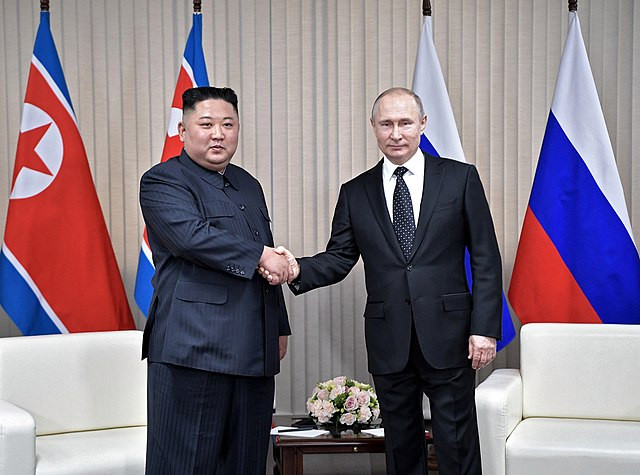Russia is set to transfer aging but capable MiG-29 and Su-27 fighter jets to North Korea in return for thousands of troops reportedly deployed by Pyongyang to support Moscow's military operations in Ukraine, according to Admiral Samuel Paparo, commander of the U.S. Indo-Pacific Command. The arrangement, first revealed during the Reagan National Defense Forum in Simi Valley, California, underscores the deepening ties between the two countries as they navigate international isolation and sanctions.
Admiral Paparo disclosed that around 12,000 North Korean troops have been deployed to Russia's frontline regions, particularly in the Kursk area, where Ukrainian forces have been conducting counteroffensive operations. While the troops are stationed in combat zones, Paparo clarified the soldiers are not in active combat, but have deployed to combat zones. His comments, however, stand in contrast to Ukrainian President Volodymyr Zelensky's recent assertions about foreign involvement in the fighting.
The fighter jets being offered, the MiG-29 and Su-27, are not modern platforms, having been introduced during the Soviet era. Despite their age, Paparo described them as "formidable" and capable of significantly enhancing North Korea's air force, which primarily relies on outdated Chinese and Russian aircraft. The potential transfer of these jets to Pyongyang could alter the military balance in the Korean Peninsula, where North Korea's rival, South Korea, operates a fleet of cutting-edge U.S.-made fighters like the F-35 stealth jet.
Beyond fighter jets, North Korea is reportedly seeking additional military technologies from Russia, including ballistic missile reentry vehicles and advanced submarine designs. Such a deal would not only bolster Pyongyang's capabilities but also raise the risk of dangerous technology transfers, especially given North Korea's history of defying United Nations sanctions on its nuclear and missile programs.
The alignment between Russia and North Korea has triggered widespread alarm among Western nations. U.S. Defense Secretary Lloyd Austin characterized the reported troop deployment as a "dangerous and destabilizing escalation." In recent months, South Korea has accused Pyongyang of supplying Russia with ammunition and other military resources, while Moscow has allegedly provided air defense systems to North Korea in return.
The deal between the two nations is seen as part of a broader strategic partnership that has grown since Russian President Vladimir Putin and North Korean leader Kim Jong Un signed a military cooperation agreement earlier this year. Both leaders have denied that North Korean soldiers are actively involved in combat and have insisted their partnership is defensive in nature, aimed only at protecting their respective national interests.
North Korea's current air force is largely composed of aging jets, such as the MiG-21 and Sukhoi Su-7. The introduction of MiG-29 and Su-27 fighters would mark a significant upgrade, particularly as the Su-27 offers advanced air combat capabilities compared to anything currently in Pyongyang's arsenal. Meanwhile, South Korea continues to modernize its air force, with production underway on its indigenous KF-21 Boramae fighter, which is expected to include a stealth variant in the future.
The United States and its allies remain concerned about the long-term implications of this emerging alliance. Russia's potential support for North Korea's missile and submarine programs could undermine regional stability and escalate tensions, particularly with South Korea and Japan. Admiral Paparo warned that this exchange might embolden both nations to pursue further military advancements despite international sanctions and diplomatic isolation.
Ukraine, which relies on older aircraft such as F-16s donated by European allies, could face additional challenges if Russian forces gain significant support from North Korean troops. European nations, including France, have pledged to send more modern fighters like the Mirage 2000 to bolster Ukraine's defenses, but questions remain about whether this will be sufficient to counter Russian gains.
The deepening collaboration between Moscow and Pyongyang has also drawn scrutiny over the possibility of future deals extending beyond military hardware. Analysts speculate that the partnership could include economic arrangements or intelligence sharing that would further entrench their mutual support. Such developments could complicate diplomatic efforts to address ongoing conflicts in Ukraine and the Korean Peninsula.






